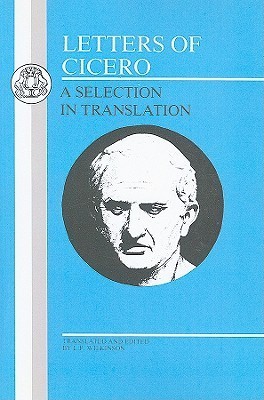What do you think?
Rate this book


Paperback
First published July 18, 2012
“For it is not only the thought of being spoken of by future ages that makes me snatch at what seems a hope of immortality, but it is also the desire of fully enjoying in my lifetime an authoritative expression of your judgment, or a token of your kindness for me, or the charm of your genius.” [Letter X: To L. Lucceius]
“For that is the maxim of that same great Plato, whom I emphatically regard as my master: ‘Maintain a political controversy only so far as you can convince your fellow citizens of its justice: never offer violence to parent or fatherland.’” [Letter XV: To P. Lentulus Spinther (In Cilicia)]
“...as in steering a ship one secret of the art is to run before the storm, even if you cannot make the harbour; yet, when you can do so by tacking about, it is folly to keep to the course you have begun rather than by changing it to arrive all the same at the destination you desire: so while we all ought in the administration of the state to keep always in view the object I have very frequently mentioned, peace combined with dignity, we are not bound always to use the same language, but to fix our eyes on the same object.” [ibid]
“...in all ages it has been rarer to find men capable of conquering their own desires than capable of conquering an enemy’s army…” [Letter XVIII: To M. Porcius Cato (at Rome)]
“I have only one last resource — philosophy: and to make her plead for me, as though I doubted the efficacy of a mere request: philosophy, the best friend I have ever had in all my life, the greatest gift which has been bestowed by the gods upon mankind.” [ibid]
“The fact is, I would have sent you a letter long ago and on frequent occasions, had I not, from expecting day after day to have some better news for you, wished to fill my letter with congratulation rather than with exhortations to courage.” [XXVI: To Aulus Caecina (in exile)]
